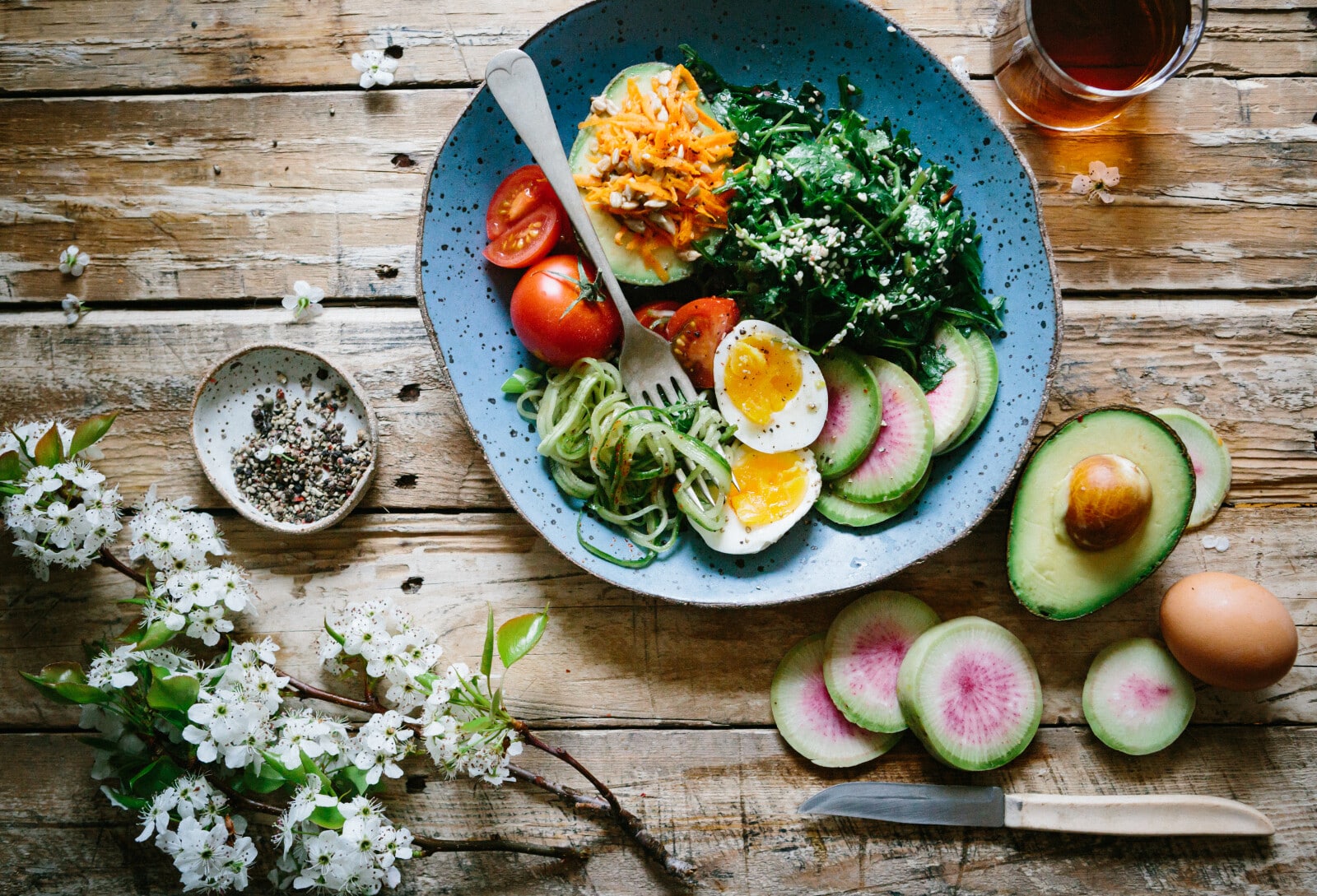nutrition
The 14 Best Foods to Eat to Boost Collagen
On This Page

Foods rich in protein can have varying amounts of collagen depending on preparation and can support skin and joint health, especially as we age.
What is collagen?
Collagen is a key protein in the body found in connective tissues which include skin, bone, cartilage, muscle, tendons, and ligaments. Its fiber-like structure helps to make tissues strong and resilient, able to withstand stretching. Collagen formation changes as we age, which can have implications for your health.
Collagen occurs naturally in some foods and can also be taken as a supplement to support various aspects of health. Some foods can also boost natural collagen production in the body.
Types of collagen
Over 28 different types of collagen exist. The main five types and what they do are:
- Type I: This is the most abundant type, making up 90% of your body’s collagen. Type I is densely packed and used to provide structure in connective tissues including your skin, bones, tendons and ligaments.
- Type II: This is found in joint cartilage and intervertebral discs (space between portions of the spine).
- Type III: This provides the supportive mesh in soft tissues such as organs, skin, and blood vessels, and is important in wound healing.
- Type IV: This is an important structure in the basement membrane of epithelial tissues.
- Type V: This type is found in the cornea of your eyes, some layers of skin, hair and tissue of the placenta.
Collagen supplements usually provide Types I, II, and III.
Benefits of collagen
Most research on collagen supplements is related to joint and skin health.
Research has shown that taking collagen regularly can help reinforce the skin's natural moisture barrier, support elasticity, and help reduce the appearance of wrinkles. One study showed improvements in skin hydration with daily intake of 10g of collagen over 8 weeks. Collagen gives strength to the skin to enable it to hold more water to maintain hydration and strength which can reduce the appearance of wrinkles.
Joints require collagen to maintain strength and flexibility to support the limbs through a range of motion. Research has shown that collagen supplemented orally accumulates in cartilage and promotes cartilage formation. Lack of collagen has been shown to disrupt joint health.
Best foods to eat for collagen
Foods that support collagen production may be rich in collagen peptides, or they may be rich in the protein that contributes to the amino acids that make collagen in the body. Some foods don’t contain collagen, but are rich in vitamin C and other nutrients that can support collagen synthesis in the body.
Vitamin C is essential for collagen synthesis in the body, but it is not required for absorption of collagen in foods or supplements.
Bone broth
Rising in popularity, bone broth is an excellent source of collagen, particularly Type I collagen. The collagen in bone broth is actually gelatin, which is the cooked form of collagen.
Not all bone broth preparations contain the same amount of collagen. While variability of collagen content exists amongst preparations of bone broth, most versions of bone broth are still collagen rich foods.
Skin-on chicken
Skin on chicken is a great source of collagen. It is also rich in the amino acid glycine, a precursor for collagen.
Enjoy skin-on chicken meat roasted and spiced for crispy texture and yummy flavor.
Sardines
Collagen in fish is concentrated in the bones, skin, and scales.
Sardines are one of the few fish where the entire fish is consumed, making it an excellent source of collagen.
You can enjoy sardines tossed in a salad or pasta, on top of crackers with mustard, or sauteed in oil with garlic and onions.
Meat
Collagen is primarily in the skin, bones, tendons, and ligaments of animals and fish. While meat is a good source of protein, it is actually not rich in collagen. However, the amino acids that make up the proteins in meat can be used in the body to build collagen.
A Western diet does not typically contain collagen-rich animal foods including organ meats, tendons, ligaments, chicken feet, and bone-in small fish.
Supplementing with collagen can be an easy alternative to collagen-rich foods.
Eggs
Eggs are a great source of protein and other nutrients, but they don’t contain collagen.
However, eggshell membrane is a good source of collagen. Care/of’s groundbreaking egg membrane-derived collagen is vegetarian friendly and is a natural source of collagen types 1, 5, and 10 and is great for joints and skin.
Organ Meats
Most of the meat consumed in Western diets is muscle meat, which does not contain much collagen. Organ meats, on the other hand, are a very good source of collagen in addition to a variety of essential nutrients.
A popular way to enjoy organ meat is eating liver pâté, which is finely ground liver, onions, and other flavorings cooked and used as a spread with bread or crackers.
Fish and shellfish
Fish bones and scales contain more collagen than the meat of the fish. This is why small whole fish like sardines and anchovies are a great source of collagen since the bones and sometimes scales remain present in the prepared fish. There are also marine collagen products made from fish.
Citrus fruits
Citrus fruits are rich in vitamin C and include oranges, grapefruit, lemons, and limes. They also contain the mineral copper, which is necessary for the function of one of the enzymes involved in collagen formation.
Avocado
Avocados are rich in antioxidants as well as healthy fats that can promote healthy skin. Lutein and zeaxanthin are two of the major carotenoids found in avocados which can also promote skin health by providing protection from UV rays. The nutrients in avocados can help protect against collagen decline.
Broccoli
Often overlooked compared to citrus fruits for vitamin C, broccoli is actually an excellent source of the vitamin. And vitamin C is an important nutrient that supports collagen formation. Broccoli also contains several phytochemicals that have numerous health benefits such as polyphenols.
Garlic
Garlic provides a small amount of vitamin C in each clove. It can also help to manage oxidative stress and therefore may help protect collagen from degrading. This study also demonstrates potential for skin support from active compounds found in garlic. Since this was done in vitro, additional research needs to be done.
Leafy greens
In addition to their vitamin C content, dark leafy greens also contain a compound called chlorophyll. This compound has been reported in research to help improve facial wrinkles and elasticity through supporting type I collagen formation.
Tomatoes
Tomatoes are a good source of vitamin C and are rich in antioxidants that can help manage oxidative stress from sun exposure. These two qualities can promote collagen formation.
Spirulina
There is limited research on collagen production and spirulina in particular. However, spirulina is a good source of vitamin C as well as chlorophyll, the green pigment in plants that may support collagen formation.
Spirulina is commonly available in a powder form that can be added to water, juice, or smoothies.
Can you increase collagen naturally?
You can increase collagen naturally through the following dietary tips:
- Eat foods rich in the amino acids glycine, proline, and hydroxyproline. Generally these are found in protein rich foods.
- Eat vitamin C rich foods.
- Eat foods rich in antioxidants to help reduce oxidative stress, which can negatively impact collagen formation in the body.
What destroys collagen production?
Oxidative stress is a process in the body in which free radicals are formed which can lead to damage. This process can prompt collagen degradation, leading to skin that is thinner, less elastic, dryer, and more wrinkled, as well as impacting joint health.
Smoking, exposure to UV light, lack of sleep and exercise, and excess sugar or carbohydrate intake can all diminish collagen production. Our bodies also gradually make less collagen as we age, as the collagen in the deep layers of skin changes from a tightly organized network of fibers to an unorganized maze.
Final takeaways
Collagen is an essential component in the structure and integrity of connective tissues all throughout the body. Eating foods rich in collagen or rich in the main amino acids that make up collagen (proline, hydrocyproline, and glycine), vitamin C, and antioxidants can promote collagen formation in the body. Some foods (like bone broth) can have varying amounts of collagen based on how it's prepared - so it might not always be easy to pinpoint exactly how much collagen is in a particular food so the key is eating a variety of foods and making sure you get enough protein since that is a major source of amino acids.



